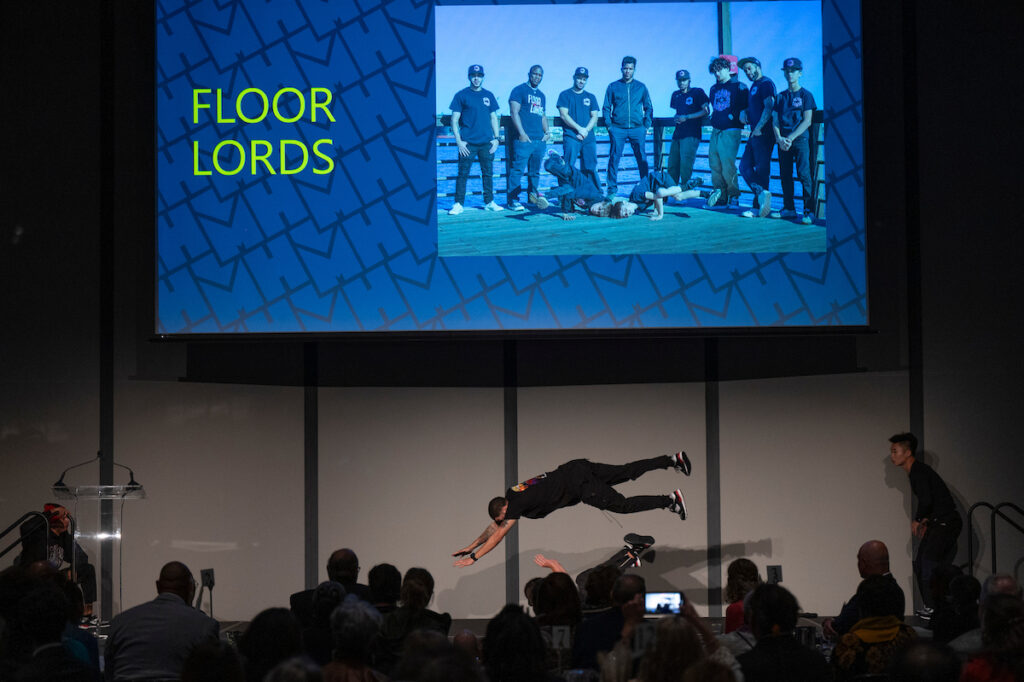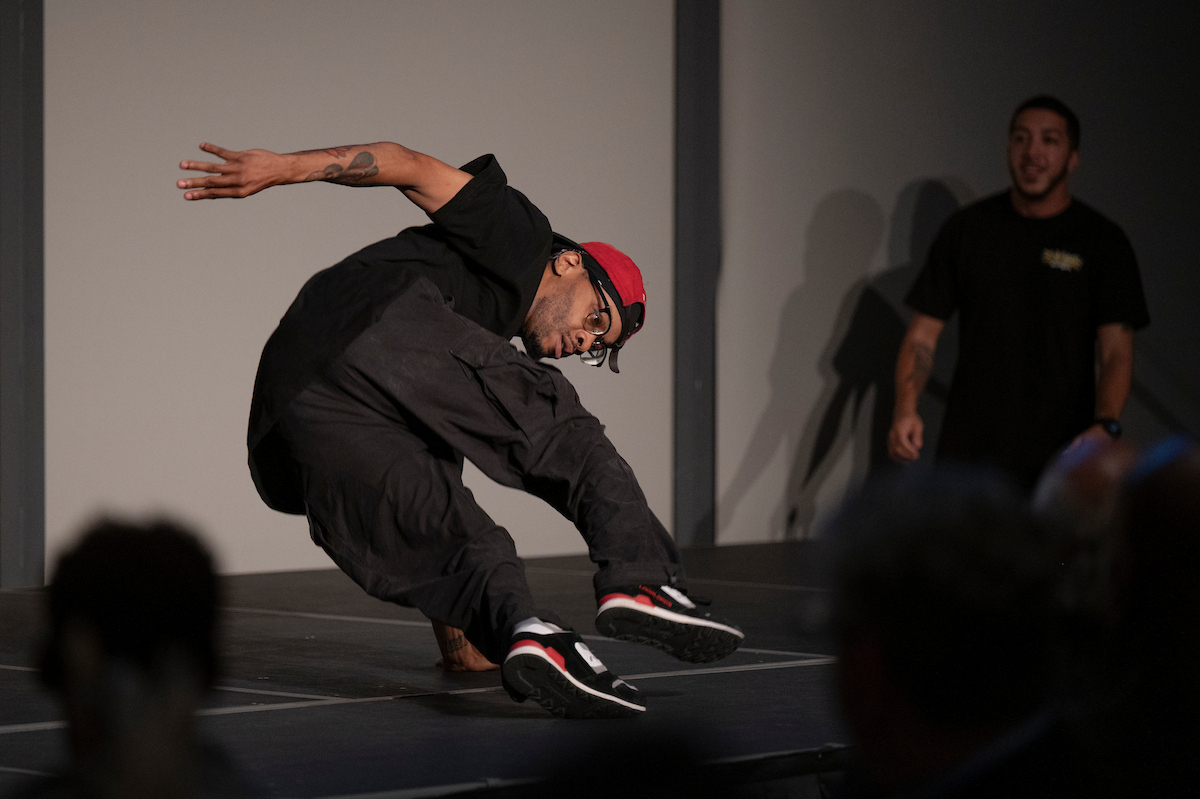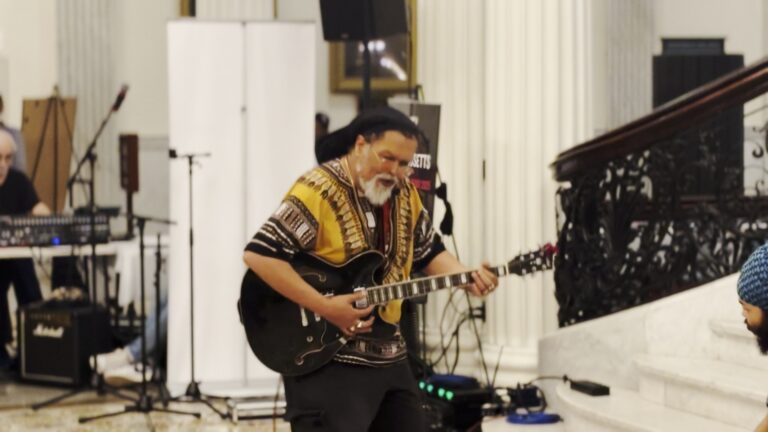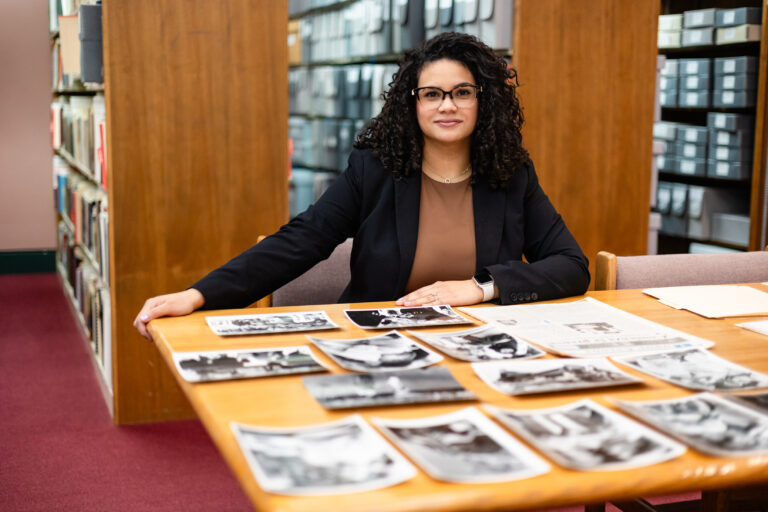On Thursday, September 26, over 200 friends and supporters of Mass Humanities gathered at the John F. Kennedy Presidential Museum and Library in Boston to celebrate this year’s Governor’s Awards honorees: Cheryll Toney Holley, Bob Rivers, Jackie Jenkins-Scott, and Martín Espada.
The energy in the room was palpable, thanks to several dynamic performances. Afro-Puerto Rican dance and music company Bomba de Aquí welcomed guests into Smith Hall. Broadway singers Paul Oakley Stovall and Nicole Morris played an original song, titled “Outside,” to officially kick off the ceremony. The lyrics of the song imagine the internal struggles that abolitionist Frederick Douglass might have experienced as he navigated life as one of the 19th century’s most prominent public figures. Morris is the great-great-great-great granddaughter of Douglass.
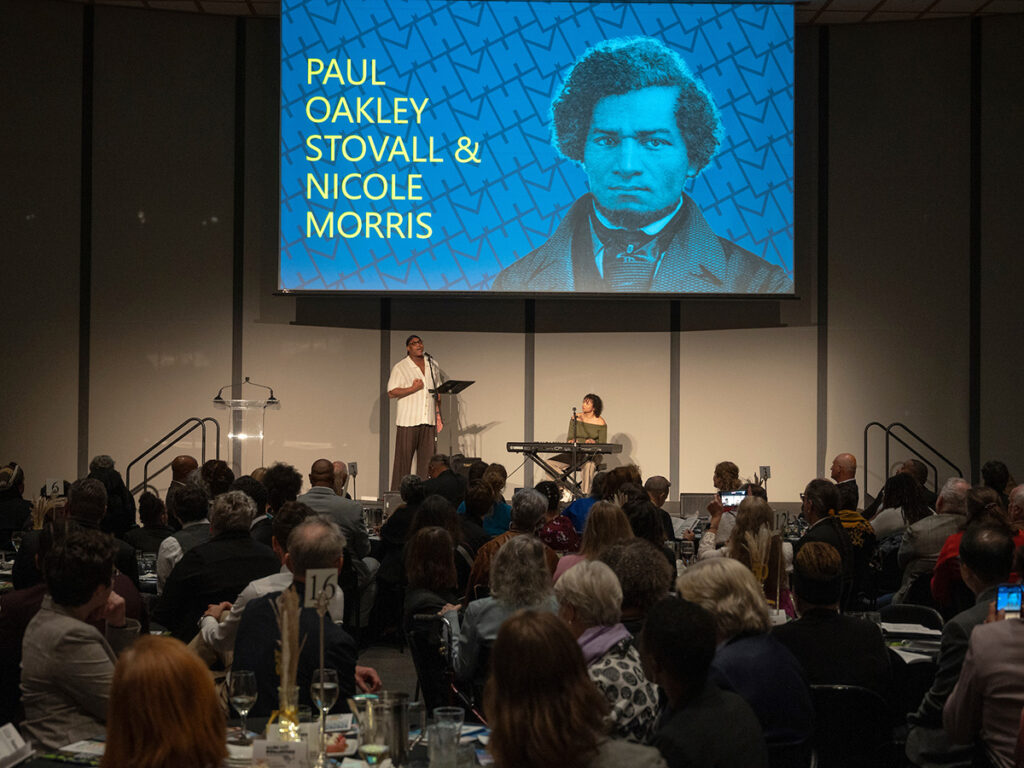
Maura Healey, Governor of Massachusetts, congratulated the award honorees in a pre-recorded message.
“Your work, your dedication, your passion prove that the humanities are not only about reflection, they’re about action,” she said. “Together, with the humanities as our guide, we can navigate the complexities of our time. We can open doors and build bridges to a better understanding—something we need now more than ever.”
“Being Human”
Executive Director Brian Boyles shared a framework for understanding Mass Humanities’ 50 years of humanities work in the Commonwealth by unpacking the meaning of the organization’s new tagline: “Be Human.”
“As the events of the last year unfolded, I realized the question of how to be human is the one that we face,” he said. “In a time when hatred is profitable, when dehumanization is weaponized and well-resourced, we commit day in and day out to our libraries, our museums, and our cultural centers, and to the many organizations that serve immigrant communities and economically disadvantaged people. We commit to recognizing that our fellow human beings are worth fighting for, worth respecting, and worth listening to—that is a commitment we make again and again through the humanities. I’m proud to be part of an organization that has made that commitment for 50 years.”
Changing the Narrative about BIPOC and Indigenous Communities
First to be honored Thursday evening was Cheryll Toney Holley, the Sonksq (female leader) of the Hassanamisco Nipmuc Band, a state-recognized Indigenous tribe. Holley opened her remarks by emphasizing that her accolade is a “collective achievement” based upon “the work of my ancestors, my elders, and every one of you that has walked this journey with me.”
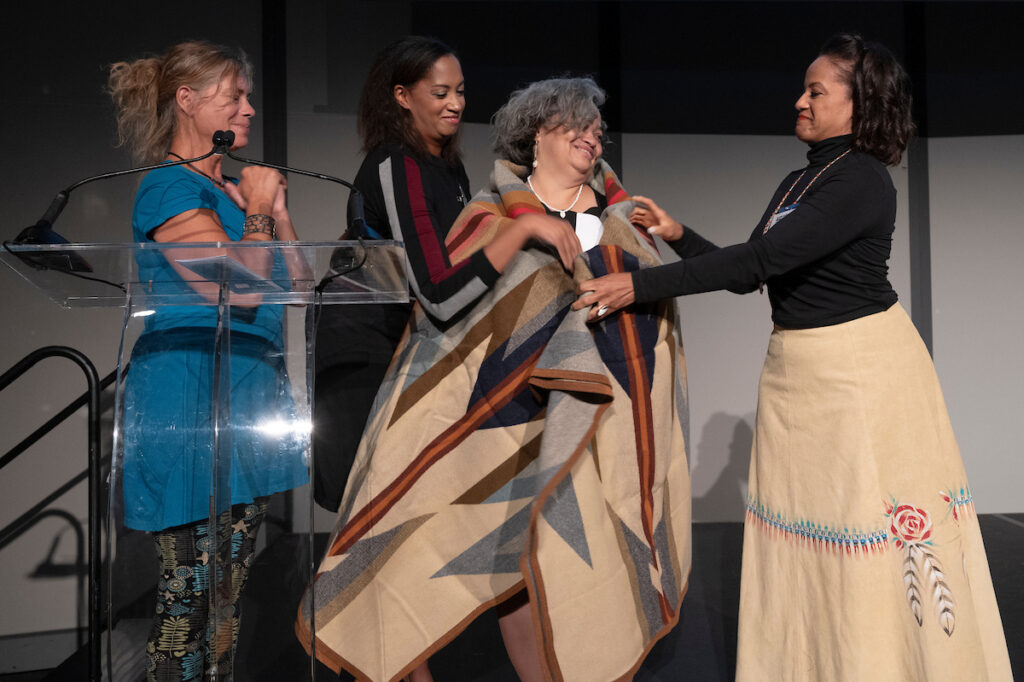
She went on to describe how narratives about Indigenous and Black communities have been distorted by colonialism, racism, and structures of power, ultimately suggesting a few ways that these false narratives can be resisted:
“How do we change this narrative? First, we must tell our own stories. We need to lift up the voices from our communities: the elders, the youth, the leaders who are already doing this work. We need to share the realities of our past, present, and future, in ways that acknowledge both the struggles and the brilliance of our people. We cannot wait for others to do this for us, to define us. We must define ourselves.”
Holley continued: “Second, we must challenge these stories at every level, through education, media, policy, and conversation. We must confront the stereotypes and assumptions that keep these false narratives alive. From our classrooms, to our boardrooms, to our living rooms.”
“And lastly, we need allies. Those of you in this room with your platforms and your privilege, have a role to play. You can help by amplifying our stories, by questioning harmful stereotypes when you hear of them, by supporting policies that honor Indigenous sovereignty and promote racial equity, and by investing in Black and Indigenous communities without trying to control or change us.”
Head & Heart
Bob Rivers, Executive Chair and Chair of the Board at Eastern Bank, recounted four anecdotes that shaped his sense of urgency about helping those living on the margins. Key to his experience, he said, was his understanding of social challenges and equity issues moving from “his head to his heart.”
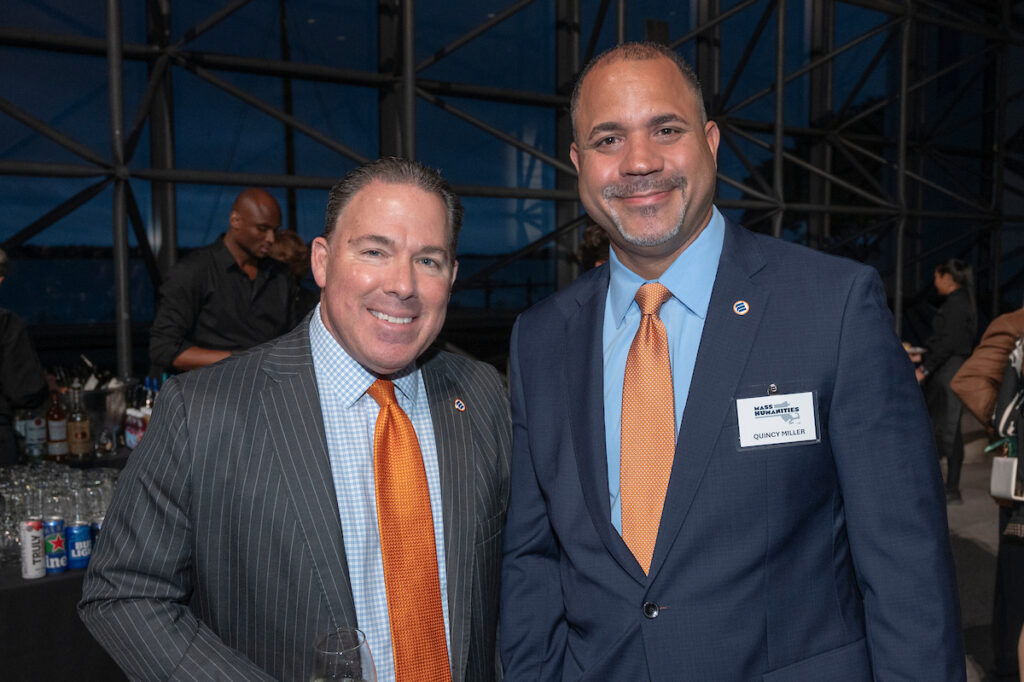
“I was 42 when I became President of Eastern Bank,” said Rivers. “And, 18 years later, mindful that my time is short, […] I’ve developed an increasing sense of urgency about the work to be done and how best to contribute to it. This is the opportunity and responsibility that all of us have.”
“Stories inspire us, they guide us, and they connect us,” he added. “They allow us to share who we are, and collectively build a stronger community.”
The Connective Tissue
Transformational leadership consultant Jackie Jenkins-Scott began her remarks by underscoring how the humanities are the “connective tissue” that links people to a shared humanity. She also highlighted her experience as a Mass Humanities board member.
“One of the first things we did as a board was to look at ourselves, and to understand what DEI really means,” said Jenkins-Scott.
She went on to detail how Mass Humanities emerged from the COVID-19 pandemic as a stronger organization, one that delivered on its promise to focus its strategy on supporting storytelling.
“Storytelling lifts up each of our unique histories and our unique person. And gives us agency. That is what makes Mass Humanities different,” she said. “It gives us value. Not just in the large communities across the Commonwealth, but the board decided to take on making sure that our smaller communities got a chance to hear and share their stories.”
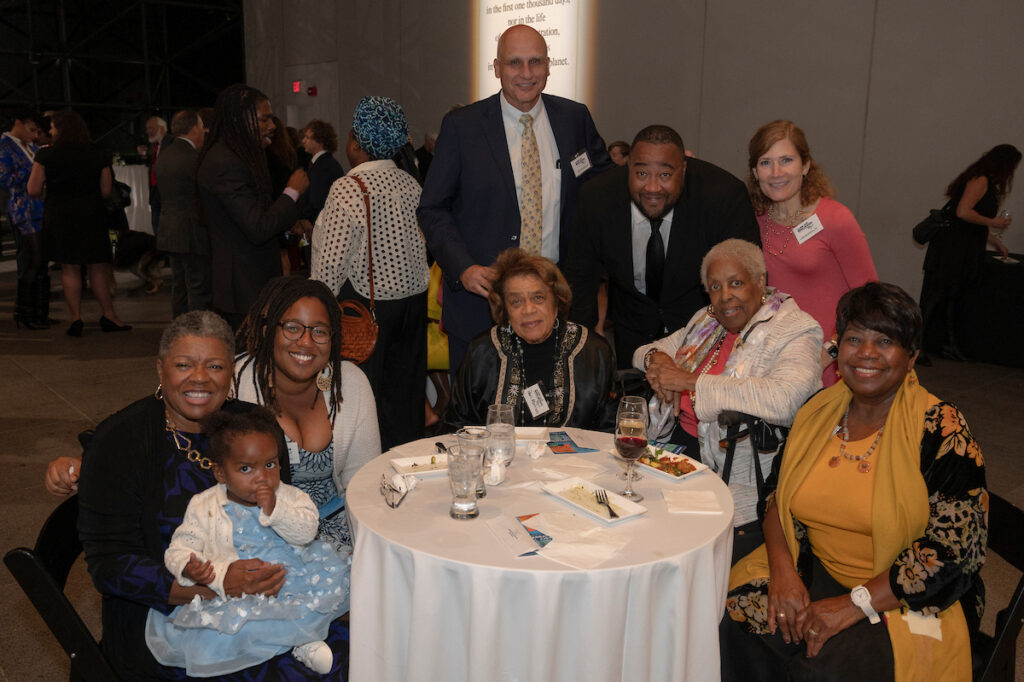
“Poetry should go where it allegedly does not belong. Poetry should go to a so-called ‘non-traditional’ audience which is, in fact, the most traditional audience of all.”
Poet, editor, essayist, and translator Martín Espada opened his remarks by acknowledging the influence of his father, noted documentary photographer and community organizer Frank Espada. He also thanked David Tebaldi, president emeritus of Mass Humanities, for awarding a humanities grant to META (Multicultural Education Training and Advocacy), a nonprofit public interest law film which Espada worked at as an attorney in the 1980s. Espada also explained how he has felt privileged to work with students in the Clemente Course in the Humanities, both at the Care Center in Holyoke, as well as in Brockton.
Espada read two poems during his remarks. “Gonzo,” a poem based on his wife Lauren Marie Espada’s experience working as a tutor at a rehabilitation center in New Jersey, addresses the value of literacy. “Big Bird Died for Your Sins” offers reflections on resistance to remaining silent.
“In the Latino community, migrants and the children of migrants, literacy is the difference between who we are, and who certain people say we are,” said Espada.
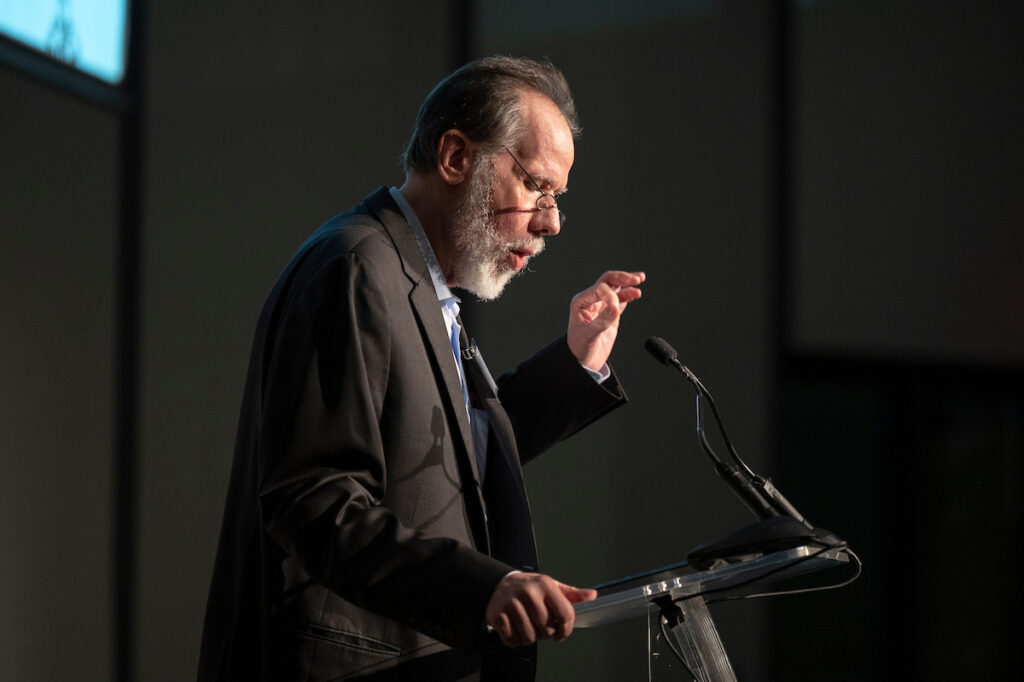
Our 50th anniversary continues
To commemorate our 50th anniversary, we will be releasing a series of short films this fall that revisit major projects and programs from the Mass Humanities archive. Love Letters to Lawrence, one of the films in the series, debuted at the Governor’s Awards. You can watch the film below.
Support Mass Humanities
As we enter the final quarter of our 50th anniversary year, we also enter the final stages of our 3-year, $3-million By and For the People campaign. There is still time to make a gift to help us reach our goal—please visit our Donate page.
Proceeds from sponsorships, ticket sales, and direct donations benefit the organizations and programs that Mass Humanities supports each year, including the Clemente Course in the Humanities, Reading Frederick Douglass Together, Expand Massachusetts Stories, and other humanities-based programming that reaches people throughout Massachusetts.
Mass Humanities would like to thank the following sponsors for making the 2024 Governor’s Awards a huge success:
Visionary
Eastern Bank Charitable Foundation
Luminary
Anonymous
Lia and Bill Poorvu
Patricia and Bob Rivers
Laura B. Roberts and Ed Belove
Champion
John Burgess and Nancy Adams
James and Laura Burke
Ron and Colleen Hertel
Stephen and Darcy Immerman
K|B Private Wealth Management Group of Wells Fargo Advisors
Meet Boston
Stephen Rosenfeld and Margot Botsford
Seyfarth Shaw LLC and Kristin McGurn
Benefactor
Clearbrook Fund at the Greater Worcester Community Foundation
Five Colleges, Inc.
John and Marie Dacey
Al and Sally Griggs
Jackie Jenkins-Scott
University of Massachusetts Amherst
New England Public Media
Vacovec, Mayotte and Singer LLP
Write the World
Supporter
Margaret Burnham
Elizabeth Duclos-Orsello
Ellen Dunlap
Embrace Boston
GBH
Bruce and Judy Grinnell
Lawrence R. Hott, Florentine Films/Hott Productions, Inc.
John F. Kennedy Library Foundation
Polly Longsworth
Oscar Malcolm
Imari Paris Jeffries
Proverb Agency
Marita Rivero
Yves Salomon-Fernández
David Tebaldi
Tony Turner
Perry Wu and Grace Kao
